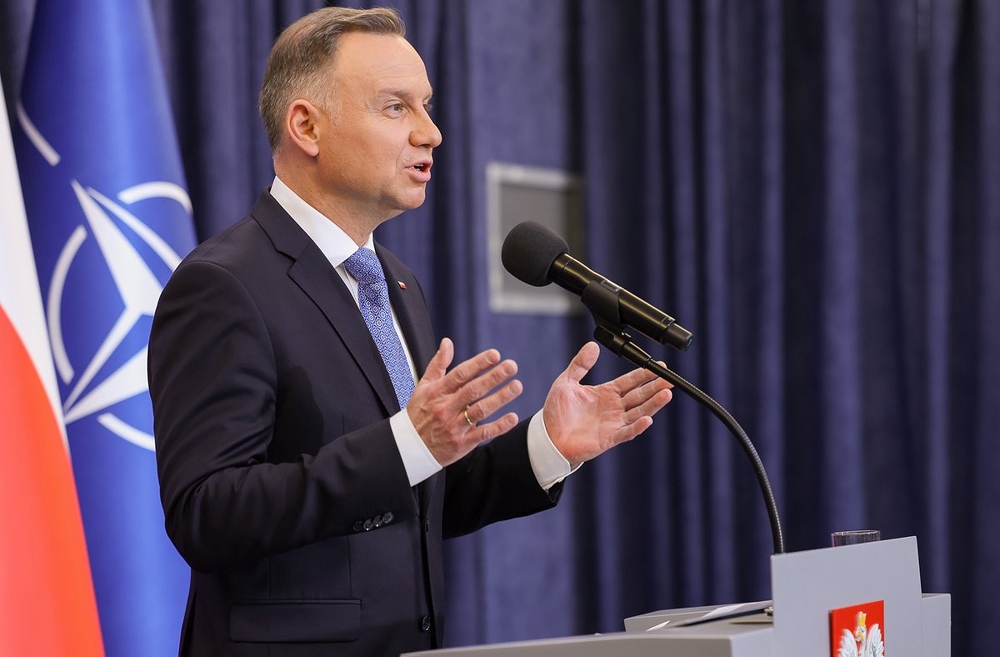Poland’s ruling Law and Justice (PiS) has decided to delay pushing forward with legislative proposals agreed upon with the European Commission as part of a deal to unlock the country’s share of EU recovery funds after President Andrzej Duda expressed concerns over their content.
The party’s deputy speaker and head of the PiS parliamentary caucus, Ryszard Terlecki, confirmed on Thursday that it will respect the wishes of Duda and will delay the beginning of deliberations over legislation to change the court that is responsible for disciplining judges until January.
The legislation is also intended to protect the immunity of judges from disciplinary procedures for questioning the status of judges appointed under the contested reforms that have been introduced in the last few years.
The legislative draft was submitted to parliament on Tuesday night and is reported to have been agreed upon by the European Commission as a way of fulfilling the milestone on independence of the judiciary. According to the draft, all matters pertaining to disciplinary procedures against judges will be conducted by the Administrative Court (NSA) and not by a recently instituted chamber of the Supreme Court. It also ensures judges will not be disciplined for challenging the status of other judges and that such challenges will be reviewed.
Duda said on Thursday that he had not participated in the drafting of the proposed legislation and that he had not been adequately consulted on plans. He appealed for calm and considered judgment of the proposals and stressed that he would not agree to any measures that stood in conflict with the constitution.
Duda underlined that the appointment of judges was his prerogative and that no legislation should in any way undermine his ability to do so. That power to appoint judges is his and his alone, he claimed, and no verification process is envisaged in Poland’s constitution.
Back in the summer, the Polish president had negotiated and piloted a law that changed the way disciplinary matters were handled by the Supreme Court. That law was passed, but the European Commission said that it was not enough to fulfill the milestones on judicial independence and continued to withhold Poland’s part of the EU Recovery Fund.
The latest attempt to unlock the EU Recovery Fund was negotiated by the government and is reported to be fully acceptable to the commission. It is not, however, supported by Justice Minister Zbigniew Ziobro and the faction of MPs who support him. Without their support, the ruling party will need to gain at least some opposition support to pass the legislation.
The president’s intervention complicates matters further. If the legislation that has been negotiated with the European Commission is not passed in the agreed-upon version, there is concern that Brussels may once more decide to continue to block the EU funds Poland is anxious to receive, especially with an election on the horizon next year.






